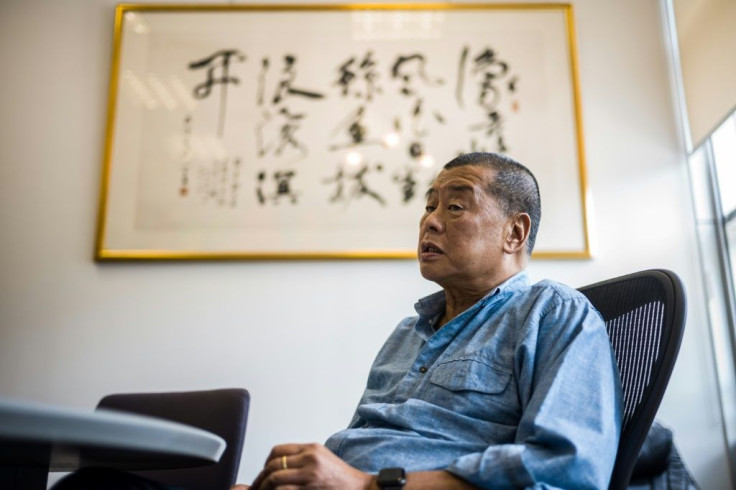Taiwan Warns Jimmy Lai Asset Freeze Signals New Hong Kong Risk
Taiwan on Saturday warned that risks for businesses have increased in Hong Kong after authorities in the international finance hub used asset freezing powers under Beijing's new national security law for the first time.
The warning came in response to Hong Kong freezing billionaire pro-democracy tycoon Jimmy Lai's assets, including shares in his media publications, for allegedly breaching the security law.
Taiwan's Mainland Affairs Council said the move "highlights the National Security Law's threats".
"It's equivalent to announcing to the international community that Hong Kong's business risks are increasing," the council said in a statement.
Self-ruled Taiwan has voiced support for Hong Kong's democracy movement and has quietly given sanctuary to residents who successfully flee there.
"We also once again call on relevant parties to stop suppressing Hong Kong democrats, otherwise they will drift away from popular sentiment," it added.
The action by Hong Kong marks the first time that authorities have used the security law to freeze the shares of a listed company's large shareholder -- a step that could cause further jitters for investor sentiment in the business hub.
The security law, which was imposed by Beijing last year, grants authorities sweeping powers to freeze the assets of anyone, or company, deemed to be a national security threat.
Friday's order covered Lai's shares in his Next Digital media group and the property in the local bank accounts of three companies owned by him.
The 73-year-old media tycoon has long been a thorn in Beijing's side for his caustic newspaper and unapologetic support for democracy.

His Apple Daily newspaper has staunchly backed Hong Kong's pro-democracy cause, including the huge and often violent protests that swept the international financial hub in 2019.
Apple Daily said the asset freeze did not extend to its own bank accounts and the paper would continue to publish.
Lai is currently in jail for attending some of the huge democracy protests that rocked Hong Kong.
He is also charged under the security law for allegedly calling for sanctions against China and could be jailed for up to life if convicted.
Chinese authorities have rolled out a relentless and successful campaign to silence dissent in Hong Kong since 2019's protests.
Beijing argues the security law was needed to return stability and does not impact freedoms.
But its broad wording and subsequent application have criminalised much dissent and radically transformed a once politically pluralistic city.
More than 100 people have been arrested under the law.
On Wednesday, more than 40 percent of a top US business group's members in Hong Kong said they plan to leave the city, with 60 percent of those citing concerns over the national security law.
However, leaving is an expensive and disruptive endeavour and so far there has been little sign of a business exodus.
© Copyright AFP 2024. All rights reserved.





















